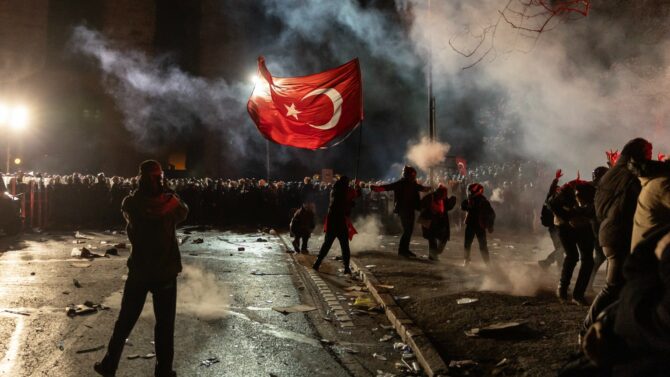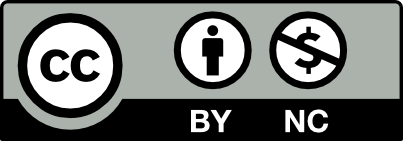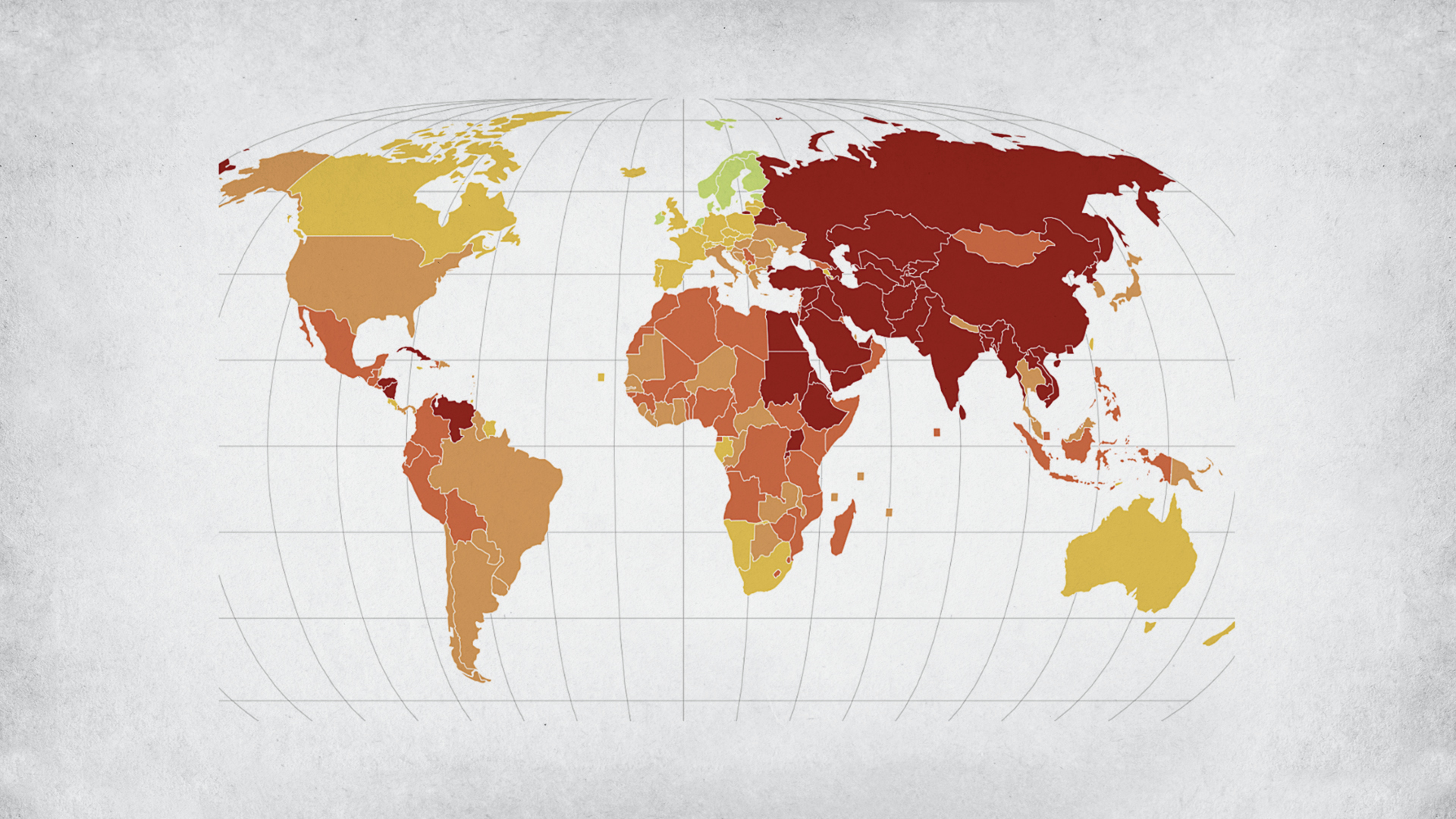For the first time, global press freedom has been officially classified as “difficult situation,” as mounting economic pressure pushes journalism to the brink of survival. Despite rising by one place since last year, Greece ranks last among EU countries in the 2025 World Press Freedom Index published by Reporters Without Borders (RSF).
“My Sister Asks Me Every Day if I Am Okay” — The Persecution of Journalists in Turkey

From the outset of the crisis—triggered by the arrest of Ekrem İmamoğlu—journalists have been targeted, and authorities have imposed restrictions on social media. What does the future hold for Turkey?
A Critical Moment for Global Press Freedom
At the global level, RSF report historically low levels of press freedom since the Index’s inception in 2002. This year, marks the first time the global situation has been officially described as “difficult.” The main cause: economic pressure, which RSF describes as a “major, more insidious problem.”
In 160 of the 180 countries ranked, media outlets are fighting for financial survival, with nearly a third experiencing closures due to lack of resources—even in relatively stable countries like New Zealand and South Africa.
As RSF highlight, media ownership concentration, the dominance of digital platforms, and declining advertising revenues are shrinking space for independent journalism. Meanwhile, cuts in U.S. funding have deepened the crisis—especially in Ukraine, where 90% of outlets depend on international aid to operate.
From China to Iran, Nicaragua, and Myanmar, economic collapse and state repression are forcing journalists into exile and silencing newsrooms.
Greece: One Place Higher, Still Last in European Union
Greece has moved up from 88th to 89th place in RSF’s annual ranking but remains the lowest-ranked country in European Union. According to RSF, the Greek media landscape is marked by concentrated media ownership, political influence, and one of the lowest levels of public trust in Europe.
The 2021 murder of crime reporter Giorgos Karaivaz remains unsolved, while the surveillance of journalists by the National Intelligence Service (EYP) continues to cast a shadow over press freedom in the country. RSF also note that legislative reforms following the Predator wiretapping scandal fall short of European standards.
Journalists in Greece face financial insecurity, frequent legal threats such as SLAPPs, and risks to their physical safety. The situation is worsened by a fragmented media landscape dominated by a few powerful private groups, some of which hold close ties to political elites, resulting in a very polarized press.
A Broader European Concern
Europe continues to rank highest globally in press freedom, yet RSF warn of growing internal imbalances. In the EU and Balkan region, 70% of countries saw a decline in the economic indicator that measures media sustainability. Many public broadcasters—including those in Slovakia, Bosnia, Serbia, and Kosovo—are facing serious viability threats due to underfunding and political interference.
The European Media Freedom Act (EMFA), which RSF note could help strengthen both the financial and editorial independence of media outlets, is still pending.

